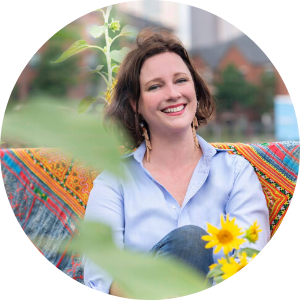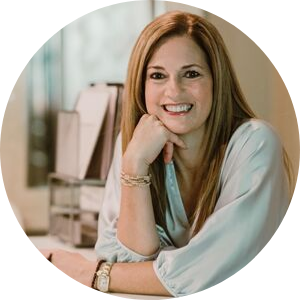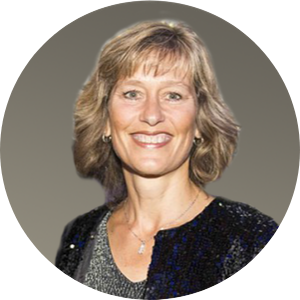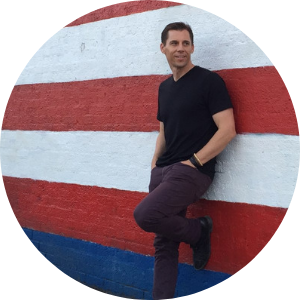
Doing Well + Doing Good: Lauren Clarke and Turn Compost
Doing Well + Doing Good: Lauren Clarke & Turn Compost
Lauren Clarke is the founder of Turn Compost, a wildly successful social enterprise focused on reducing food waste and improving how we utilize our urban environment. She shares alarming and exciting statistics about food waste and the blooming food waste industry. She also gives essential advice to anyone with the vision of starting a social enterprise.
Episode 8 | October 24, 2019
Show Notes
My passion for gardening may strike some as selfish, or merely an act of resignation in the face of overwhelming problems that beset the world. It is neither. I have found that each garden is just what Voltaire proposed in Candide: a microcosm of a just and beautiful society.
Andrew Weil
I remember the delight I felt the first time I saw a post about Turn Compost by Bonton Farms on Instagram. It was a colorful photo of livestock enjoying food scraps. The vegetable scraps were bountiful and the livestock looked very satisfied. It was very pastoral. I had the sense that a cycle was not just being completed – it was being amplified and given new life.
A Social Enterprise Model
Turn Compost is a Social Enterprise, or Social Impact business. In short, it’s a business that does good by addressing a social or environmental problem AND it does well by being financially self-sustaining. Social Enterprises and Social Impact businesses may be non- or for-profit. Turn is a for profit business. [10:43]
The Business of Food Waste
Food Waste is a big problem in the U.S. It makes up about 40% of our landfills and if it were a country, would be the third-largest emitter of methane gas behind the U.S. and China. [02:38] See these interesting statistics collected by Turn on their website.
Tackling food wastage can be a 2.5 trillion market opportunity for business according to an article by CNBC .
Turn is a private, organic waste pickup subscription service with both doorstep and drop off services. It’s a very innovate model! [05:35]
Organic waste is processed three different ways: it’s donated to local farms and gardens, turned into small amounts of compost and delivered back to members, and finally they partner with commercial composting facilities for other post-consumer waste. [07:51]
Bonton Farms and Farmers Assisting Returning Military (F.A.R.M.) are examples of two local farms that receive Turn donations.
The City of Dallas does not currently compost (yet!); you can learn more about Dallas’ Comprehensive Environmental Climate Action Plan and give input at their website. [11.56]
The Vision: Getting Reconnected With Food
The Atlantic had an article a few years back that explains the quote, “Calories are cheap and people are picky”. The article focuses on why we waste so much food. [13:50]
There’s a cost for us with all the innovations in food delivery: it’s getting us further disconnected from the source. We aren’t experiencing the growth cycles, the work that goes into food production and the satisfaction of providing for ourselves. [15:05]
Horticultural Therapy is a term being used for the therapeutic effects of gardening. [18:25] Bonton Farms, mentioned above, sees farming as a way to “redefine a community”. CNN ran a story about healing with horticultural therapy.
Lauren gives some advice on starting a social impact business: [20:33]
- make sure it’s financially sustainable now and has future growth potential
- assemble an advisory council of experts from various industries who will “get in your face” and tell you the truth
- be open to listening to the advice
A Deeper Purpose
Lauren’s big WHY – the ultimate reason she started Turn:
You know I care about my children, but I care about other children and children in all sorts of communities, wealthy and poor, and their connection with food and their understanding of it…it’s very concerning that there are children and families who are struggling to put food on their tables. [25:08]
Lauren Clarke is an exemplary leader and truly someone who is elevating her part of the world.





